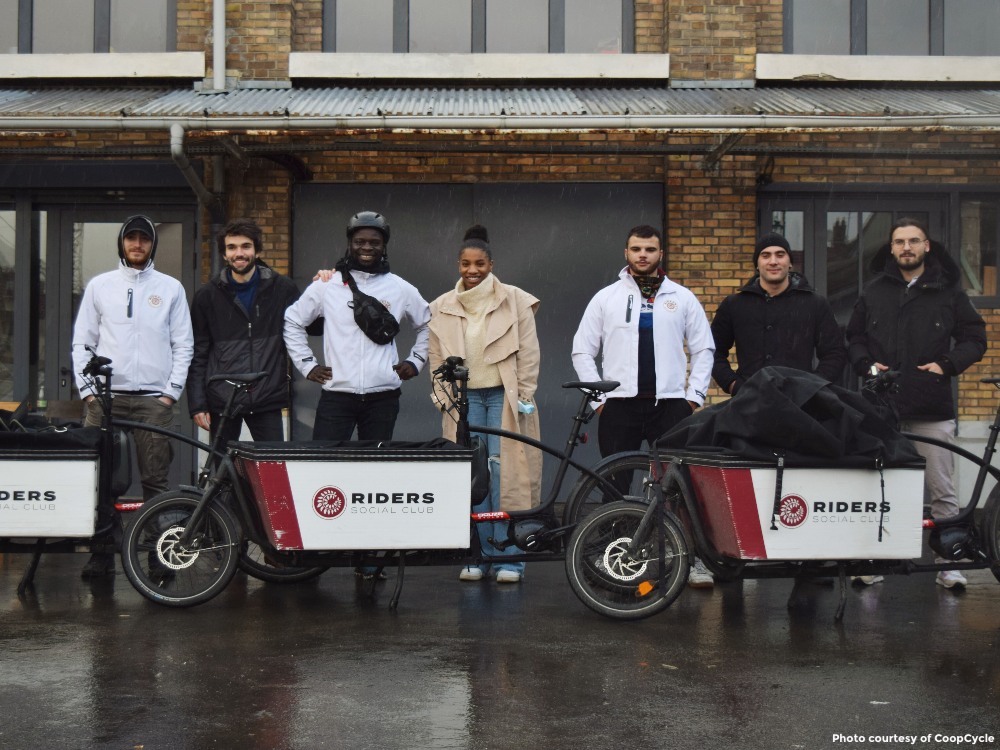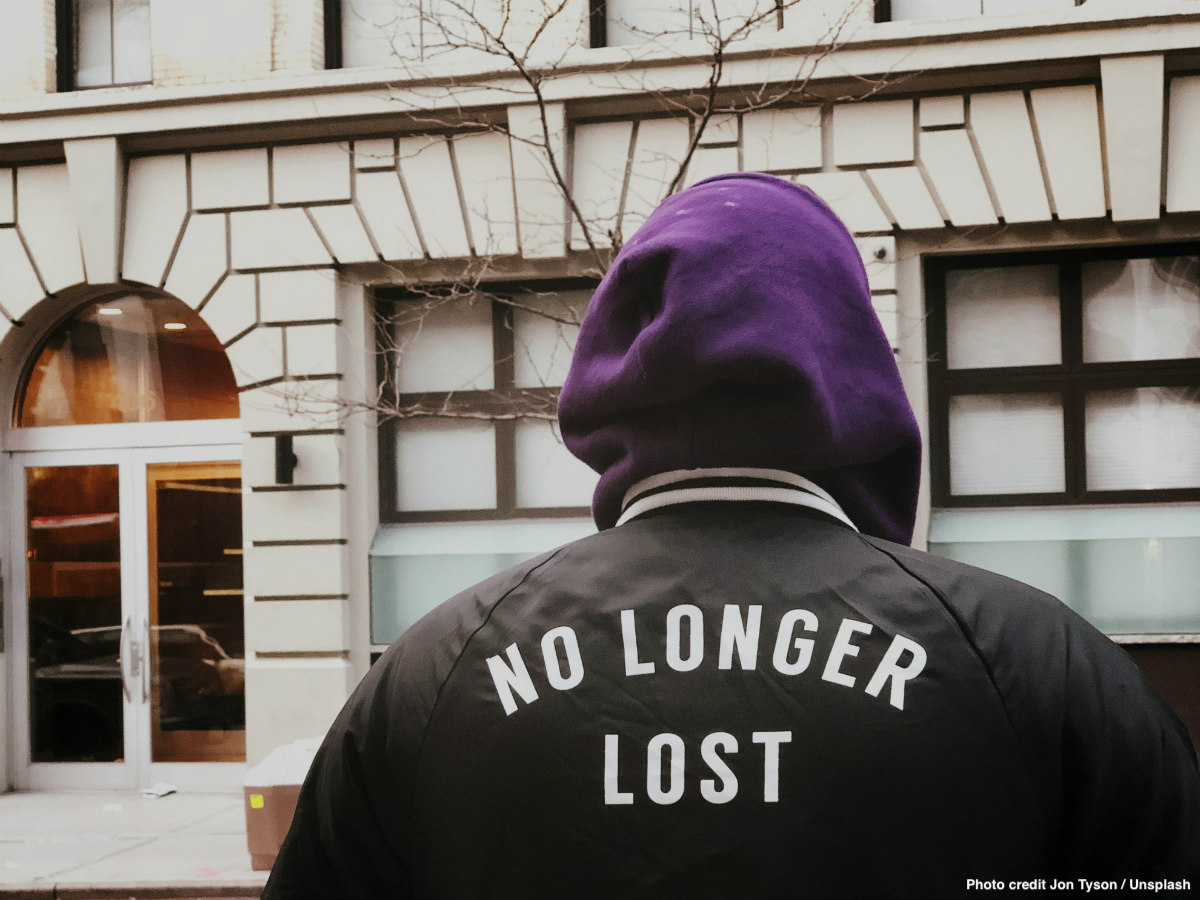Delivery riders have become part of the veins of our cities, delivering meals — or riding errands — through neighbourhoods, intermediating between restaurants, stores and people at home and giving our metropolises another way to connect. During the outbreak of the pandemic riders were on the front line and were declared heroes by their employers. But scenes of exhaustion began to occupy our streets and delivery riders’ rights have been swayed by unfair and unsafe working conditions.
Across cities you see riders sleeping on park benches during daylight or staring at the app on their mobile phones and shouting at the invisible employer, a wasted anger at the expense of an algorithm. There is not a single day I don’t see a delivery worker riding on my street. It is always the same game; more and faster rides, time is money.
Last week 17th September marked ten years of the Occupy Wall Street movement and, with the hindsight of a decade, you begin to wonder if Occupy permanently changed the paradigm of protest. It wasn’t just Wall Street. Four months before, the spontaneous 15-M Movement in Spain or indignados was calling for a more participatory democracy. These movements inspired protests in other cities around the world.

Today what Wall Street represents is back in full swing. Millions of venture capital money are flowing to startups like delivery platforms while labour conditions and delivery riders’ rights worsen. Yet this business model doesn’t break even as if the invisible legacy of Occupy had been waiting for just such a moment. By now delivery workers have grasped how to ride in crosswinds and have been demanding recognition as payroll staff with the corresponding rights.
With the same token, riders have been organizing themselves in democratically governed worker-owned cooperatives in their cities; all united by their membership to a federation of coops called CoopCycle with an ambitious plan to compete with global delivery platforms.
But, how to compete with global delivery platforms?
Born and based in Paris, CoopCycle provides the software platform to local cooperatives to run their delivery businesses, thereby reducing their costs thanks to resources pooling and creating a strong bargaining power to protect delivery riders’ rights. All is part of a plan to mastermind a new form of cooperative conglomerate, away from the traditional approach of cooperativism, operating locally and independently around an universal global application, which transforms and decommercializes the information technology sector: neither public nor private but property of the commons. Something that Trebor Scholz, professor at The New School in New York City called platform cooperativism.
Kevin Poperl and Alexandre Segura are two of the members behind CoopCycle. They met in 2016 during the Nuit Debout mobilization, a French social movement against the government’s proposed labour reforms at that time, which has been compared to the Occupy movement. Poperl and Segura took an active part in Nuit Debout and met with activists like Jérôme Pimot, founder of the Collectif des Livreurs Autonomes de Paris, who were also protesting against the negative effects of the gig economy producing ‘autonomous workers’ or freelancers with no rights.
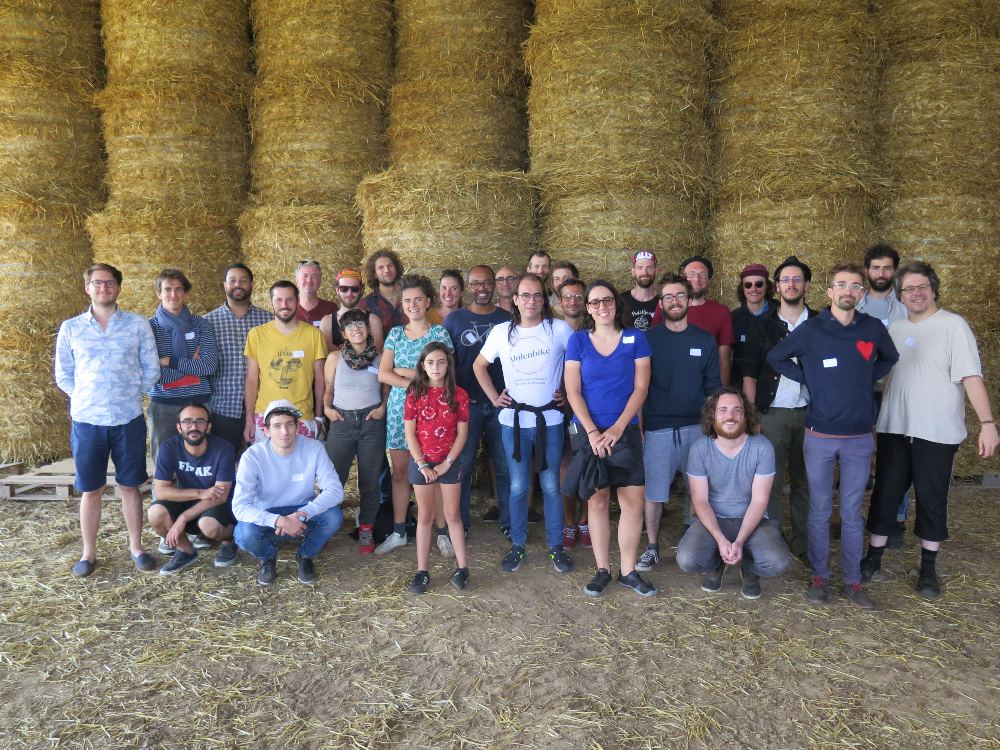
Alexandre Segura, a web developer, was disenchanted with startups and wanted to find something more meaningful to his work. Not so much interested in politics, the consequences of the gig economy were in front of his eyes when he experienced how, from one day to the next, his brother-in-law hired as a rider became jobless. At that time the delivery platform ‘Take it Easy’ filed for bankruptcy and freelance riders were left with no compensation.
The revolution of the delivery riders
When he met Kevin Poperl, an economist, at the Place de la République in Paris, their informal conversations with other people crystallized around the development of an app, which Segura was developing. It would be similar to the classical technology used by Uber Eats, Deliveroo, and other delivery apps but in the form of a cooperative platform for local rider collectives made available under two conditions: to be a cooperative owned by the riders and to have a democratic payment, all profits had to be distributed among the worker-owners (which has led to more than double wages at global platforms).
‘At that time jobless riders started some kind of strike to complain and created facebook groups which rapidly attracted lots of members. So I joined one of these groups and told them that I was coding a delivery platform and offered to use it,’ explains Segura.

The key difference of the CoopCycle software compared to other technology platforms is that it is conceived as a digital common. Legally it belongs to its developers but a Coopyleft licence allows any coop with employees to use it. This full-fledged software enables cooperatives to manage their deliveries locally, and shops and restaurants owners to access the delivery service in their respective cities. They are free to make their own decisions.
Most importantly, the delivery platform is protected by a reciprocity license, which limits its commercial use to worker-owned coops. In addition, CoopCycle limits the possibility of local cooperatives or local workers succumbing to competition among themselves or selling the app for profit, warns Poperl.
And he continues that, in the current context, investors are betting on these new unprofitable apps because they foresee the attractive possibility of controlling the final monopoly as well as being afraid to lose out in the competition. This is why Deliveroo or Uber Eats were able to raise funds until now even as they continue to lose money, although algorithms and artificial intelligence continuously adjust for efficiency in hiring rides.
The race of the riders to post-capitalism
The CoopCycle strategy is to undermine this final monopoly goal by building an open-source platform under a different ownership model, with a transparent algorithm for fair delivery riders’ rights, freely to any cooperative that wants to use it, as a humane alternative to the free market model.
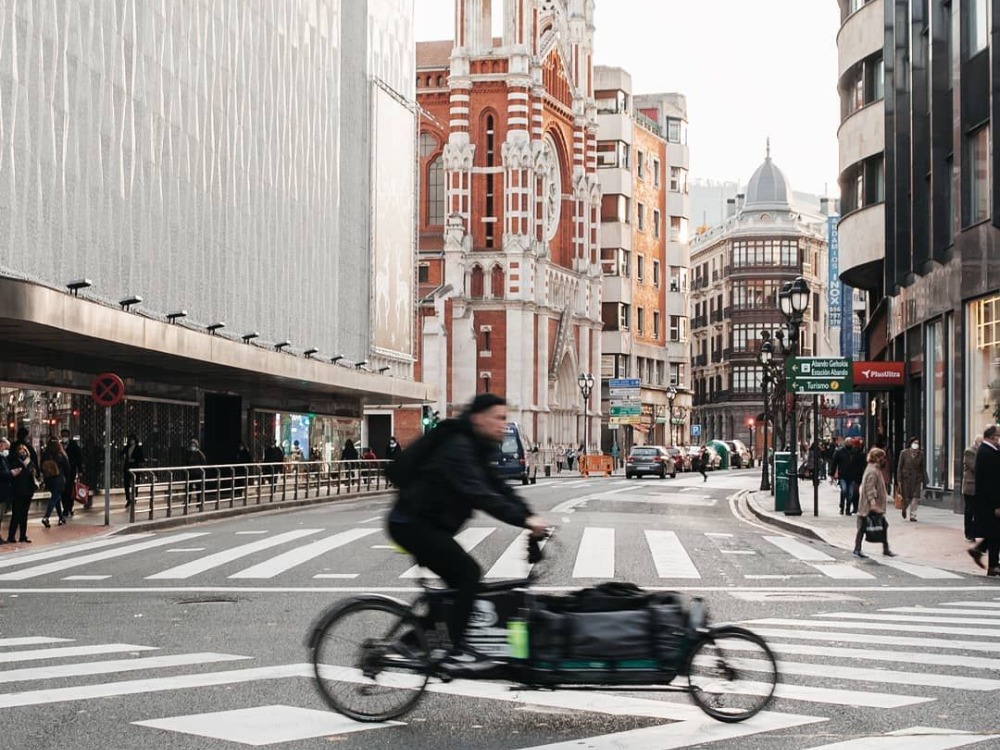
CoopCycle engages in the production of common resources, thereby benefiting economies of scale by sharing those resources, and ultimately benefiting workers.
We are determined to dismantle the phantom of the speculative bubble that to win you have to be the last delivery platform in the market. We can show a better way of operating which makes investors doubt and encourages alternatives, explains Poperl.
Recently things started to turn around. Deliveroo’s stock market float earlier this year failed with share prices below the float price, partly due to investor concerns over riders’ employment status. Delivery app Foodora exited the country in Canada when workers obtained more rights. And thanks to the efforts of riders’ collectives in Spain such as Riders X Derechos the Spanish Cabinet approved the so-called “Rider law” this year.
Basically this law recognizes food-delivery riders from digital platforms, such as Glovo and Just Eat, as employees and not self-employed workers. But platforms find ways to navigate legislation, either using HR services companies as intermediaries, causing job losses, or adjusting algorithms which suffocates riders to comply with self-employed status and prioritize workers in payroll. Another courier collective in Spain, the Asociación Autónoma de Riders, opposes the law because they feel worse off. And undocumented riders are willing to work at any price.
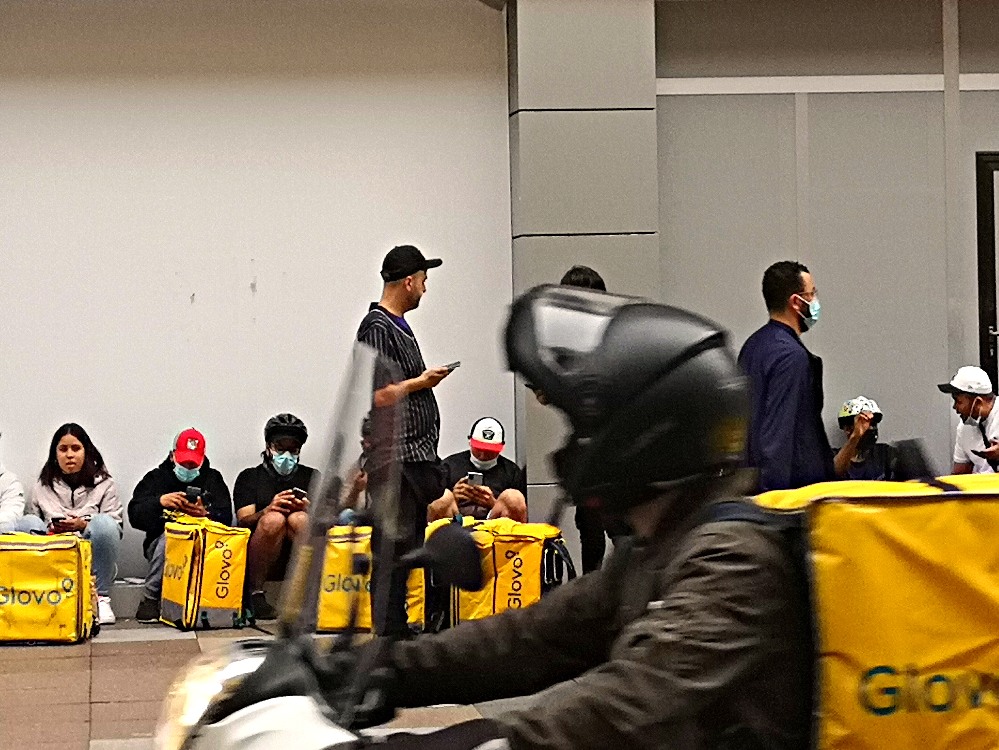
In German cities, the workers of the newly created platform Gorillas, supposedly better equipped and with better working conditions, are pushing to create a union affiliation. But in Spain and France, riders are making their voices heard outside political preferences or affiliations – workers are starting to fall out of love with unions and rather coming together in collectives to fight for their rights as Las Kellys in Barcelona.
Last week an article revealed that New York’s 65,000 delivery workers, most of them Latino immigrants, have begun forming civil guards to protect themselves from gunmen and knife-wielding thieves who want to steal their bikes. Exploited by apps like Seamless and DoorDash to deliver food faster and farther, they are unprotected by police. They are also forming activist networks to push for reforms.
‘In my opinion, we have to change the economy and bring more sense to the world. If we were not exclusively into profit, we could dedicate more time and resources to make, for instance, less emissions and ultimately tackle climate change. Maybe coops is the answer,’ says Segura.
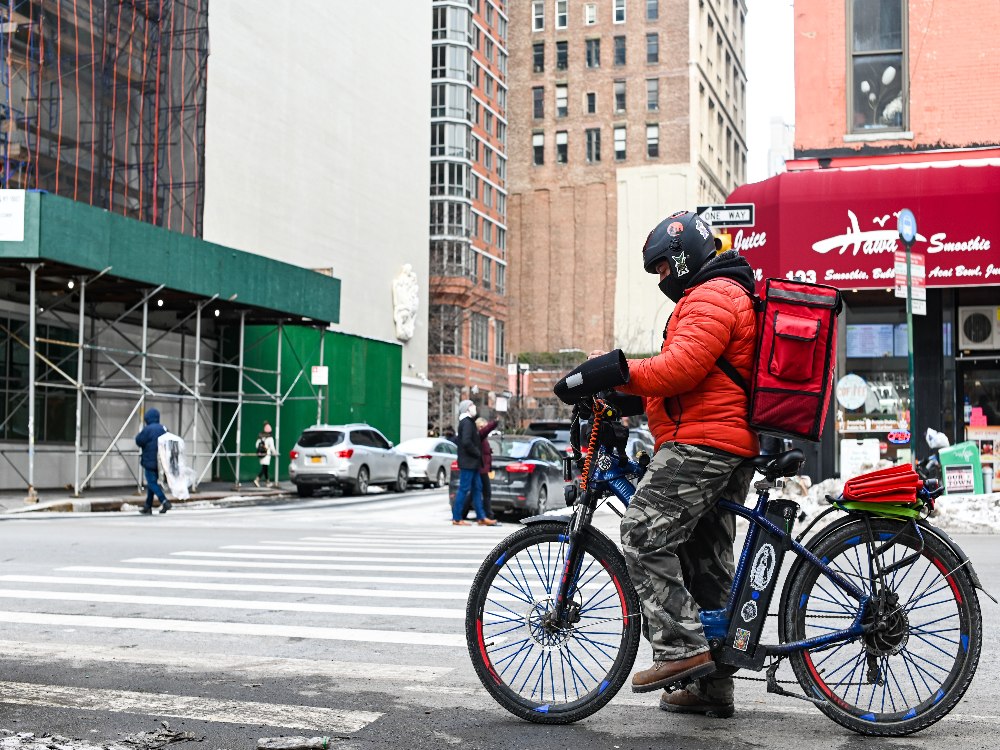
When I raise the question if people can play a big role by making the right choices about who is delivering their food, Poperl is less optimistic. CoopCycle’s founders see the need for the right labour policies and macroeconomic reforms to improve delivery riders’ rights, rather than expecting gestures from consumers or restaurant owners, argues Poperl, since they are strangled by the same capitalist market structure that liberal reforms impose.
The fact that workers are counting on themselves locally to improve their conditions, outside the old structures of capitalism tells the whole story. The wisdom of participatory democracy from Occupy and others still lingers in the air today. Social movements in our cities have cut workers’ endurance for a more humane workplace in the gig economy loose with no return. Platform cooperativism could be a credible alternative for those riding through the veins of our cities.
CoopCycle now has over 80 co-ops across cities from Europe to Canada and Australia.
